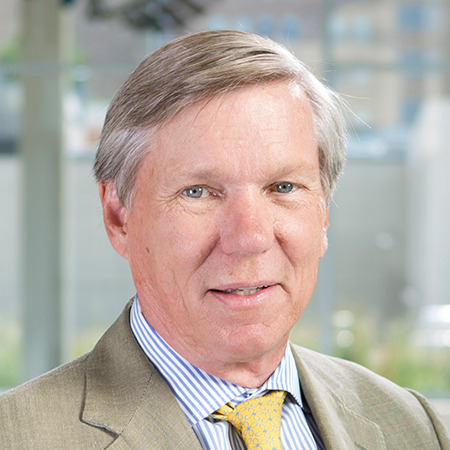In memoriam: Stephen Prescott
Stephen Michael Prescott, a former associate editor of the Journal of Biological Chemistry and president of the Oklahoma Medical Research Foundation, died May 28 at age 73. He had cancer.

Born February 22, 1948, in Bryan, Texas, Prescott earned a bachelor’s degree from Texas A&M University in 1969 and a medical degree from the Baylor College of Medicine in 1973. He completed his training in internal medicine and cardiology at the University of Utah and pursued advanced research training at Washington University School of Medicine in St. Louis. He later returned to the University of Utah as a professor of internal medicine, where he founded and directed a unique research program in human genetics.
For seven years, starting in 1999, Prescott served as executive director of the Huntsman Cancer Institute. He also served on boards of directors for several organizations, including the National Comprehensive Cancer Network and National Human Genome Research Institute. He founded LineaGen, a biotechnology company that provides accessible genetic testing for children with autism spectrum disorder and developmental delay.
Prescott served as president of the Oklahoma Medical Research Foundation for 15 years, starting in 2006, and raised $100 million to fund the largest campus expansion in OMRF’s history. Under his leadership, the foundation discovered three drugs that are now used worldwide to treat sickle cell disease, certain rare blood disorders and protein C deficiency.
In his lab, Prescott studied diacylglycerol kinases, or DGKs, enzymes that phosphorylate diacylglycerol to form phosphatidic acid. His team discovered a mechanism by which the zeta isoform of DGK stimulates the activity of a phosphate kinase and ultimately helps regulate actin polymerization, which is important in cytoskeleton remodeling. He also helped invent a method of screening for agents that regulate the shedding of membrane-bound proteins by enhancing or inhibiting the activity of DGK-delta, as well as methods of regulating inflammation and cell growth and division by applying these agents, which can be useful for treating cancer.
A JBC associate editor from 1993 to 1998, Prescott also served on advisory committees for the National Institutes of Health and American Cancer Society. He received many scientific awards, including the Sol Sherry Prize from the American Heart Association.
Diagnosed with cancer twice, Prescott published an article in a 2019 issue of OMRF’s Findings magazine documenting his diagnoses and treatments as well as his feelings about each part of his cancer journey. “The cancer I’d developed was so rare that doctors couldn’t really compare my case to others,” he wrote. “Still, one thing was abundantly clear: My circumstances were dire. Despite what you may have seen on TV or the movies, doctors don’t tell patients that they have a certain amount of time left to live. But I, more than most, could read between the lines of what they were saying.”
Prescott is survived by his wife of 52 years, Susan; brother Donald and sister-in-law Anne, daughter Allison and son-in-law Jeremiah; son John and daughter-in-law Sheila; and three granddaughters.
Enjoy reading ASBMB Today?
Become a member to receive the print edition four times a year and the digital edition monthly.
Learn moreGet the latest from ASBMB Today
Enter your email address, and we’ll send you a weekly email with recent articles, interviews and more.
Latest in People
People highlights or most popular articles

Kiessling wins glycobiology award
She was honored by the Society for Glycobiology for her work on protein–glycan interactions.

2026 ASBMB election results
Meet the new Council members and Nominating Committee member.

Simcox wins SACNAS mentorship award
She was recognized for her sustained excellence in mentorship and was honored at SACNAS’ 2025 National Conference.

From humble beginnings to unlocking lysosomal secrets
Monther Abu–Remaileh will receive the ASBMB’s 2026 Walter A. Shaw Young Investigator Award in Lipid Research at the ASBMB Annual Meeting, March 7-10 in Washington, D.C.

Chemistry meets biology to thwart parasites
Margaret Phillips will receive the Alice and C. C. Wang Award in Molecular Parasitology at the ASBMB Annual Meeting, March 7-10 in Washington, D.C.

ASBMB announces 2026 JBC/Tabor awardees
The seven awardees are first authors of outstanding papers published in 2025 in the Journal of Biological Chemistry.

